FRANCESA
RANCESWR
ANCESWHT
NCESWHIE
CESWHITT
ESWHITEA
SWHITEHL
WHITEHE
HITEHEA
ITEHEAD
TWHEADF
EHEADFR
HEADFRA
EADFRAN
ADFRANC
DFRANCE
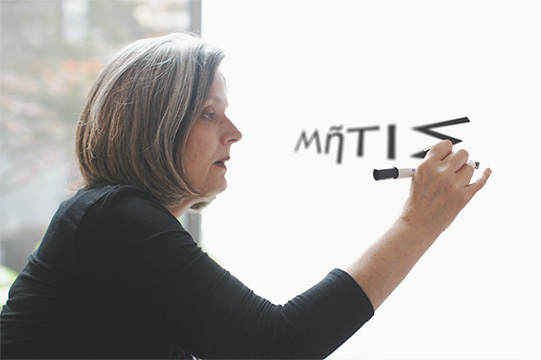
Frances Whitehead
Frances Whitehead is internationally known for her cutting edge work integrating art and sustainability, making her a leader in this emerging field. She has pioneered new practices for including artists on multi-disciplinary teams, demonstrating that the vision and cultural literacy of artists can contribute to these collective efforts. She also works with planning professionals to identify strategies to integrate cultural perspectives into their projects– to enhance the quality and sustainability of work in the public realm. This includes experiential public artworks, which foster civic engagement and help make sustainability tangible to the public. The question, What Do Artists Know? serves as the basis for Whitehead’s praxis, which originated as a 2006 “knowledge claim” articulating the tacit knowledge deployed by contemporary artists.
In addition, Whitehead has exhibited widely for 40 years including the Kochi Biennial, UN Climate Change Conference COP15 Copenhagen: The Museum of Arts/Design, NYC; Vinnistu Art Museum, Estonia; Museum of Contemporary Art, Chicago; Centrum Rzezby Polskiej, Oronsku; Spoleto Festival USA; Brooklyn Museum of Art; The Exploratorium; and The Drawing Center. Her work is featured in numerous publications including ART21:Blog,The New York Times, Chicago Tribune, Art/Design/Politics; Sculpture Magazine; Art in America, Artforum, Frieze, TreeHugger.com, and the Discovery Channel television.
Her individual work has been supported by the Chamberlain Award at the Headlands Center for the Arts (2018); A Blade of Grass Foundation Fellowship (2016); National Endowment for the Arts (1985); Tiffany Foundation (1989); Illinois Arts Council (1999, 1987, 1984); Grainger Corporation Research Grant (2009); United States Department of State (1995-6); and State of Tennessee (1998). Collaborative art/science projects have been supported by the NSF (2011), NEA (2006, 2007-09), the Rockefeller Foundation (2003-04), the Ohio Arts Council (2005-07).
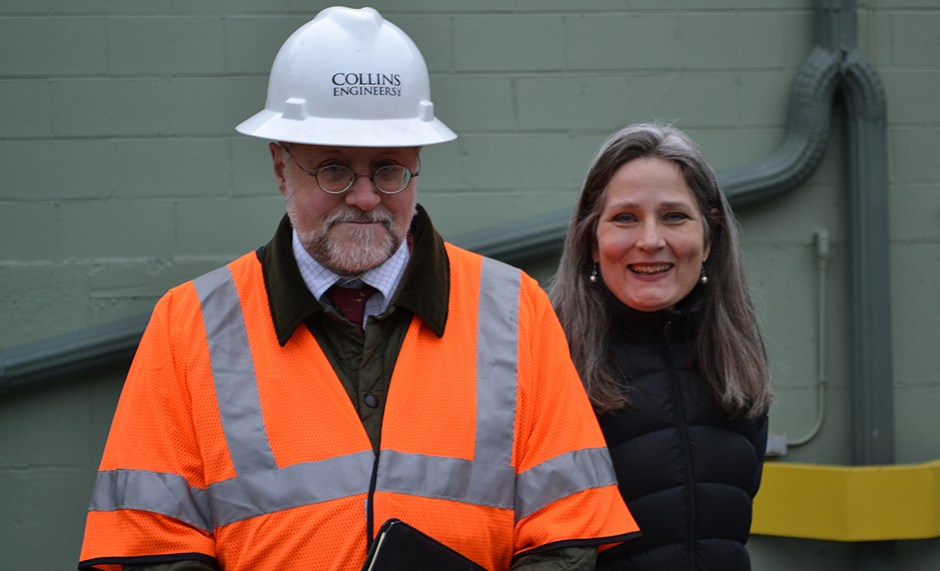
ARTetal Studio
A platform for transdisciplinary collaboration.
ARTetal Studio began In 2001 as a virtual studio and propositional space for transdisciplinary collaboration. Part critical practice, part zone of investigation, ARTetal undertakes projects that envision and actualize sustainable cultural futures. Intended initially as a rhetorical device for examining the relationship between art, design, science and technology, ARTetal –Art and everything else–has over time, afforded and expanded those very relationships. Augmenting Whitehead’s individual art practice, ARTetal Studio Inc. is now an established alternative creative platform, broadening the intellectual and operational possibilities for engagement and experimentation, modeling future practices.
Collaborators
-
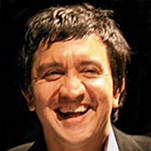
Miguel Gonzalez-Virgen
Miguel González-Virgen is an art theorist, architect and arts researcher of modern and contemporary art, focused specifically on artistic research as a paradigmatic endeavor. As Leader of the Arts Initiative at Tecnológico de Monterrey, Nuevo León, Mexico since 2021 he works to bring contemporary art to the University that explores the border between art and science in transdisciplinary projects that involve researchers and the academic community. Miguel holds a BA from Harvard College (1988), an M Arch from Harvard GSD (1991), and a PhD in Art History from Catholic University of Leuven KU Leuven, Belgium (2013).
-

Lucia Novoa Gil
Lucia Novoa Gil is a Mexican artist and video producer. Originally from Mexico City, Novoa-Gil currently resides in Oaxaca. Gil studied Industrial Design in Mexico and subsequently Painting at School of the Art Institute of Chicago, graduating BFA in 2018. Novoa-Gil has extensive experience with a wide range of video production and is currently Artworks Production Manager for the 2025 Islamic Arts Biennale.
-
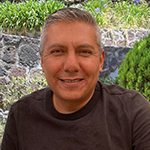
Jorge Córcega
Chef Jorge Córcega was trained in European haute cuisine in San Sebastian, Spain. Then he went through the kitchens of the Mugaritz restaurant (Spain), where he learned to question himself in the kitchen and clearly understand the product, and later traveled to London, with chef Alain Ducasse, where he perfected his technique. Back in Mexico, in Milpa Alta, he created the restaurant, Ruta de la Milpa together with his family eight years ago, in 2012, which began from his passion and affection for the countryside and the people of this area of Mexico City. The countryside is a fundamental part of his life and is core to his philosophy. The Milpa Alta model has been successfully moved to San Miguel de Allende, Guanajuato, developing activities typical of the area.
-
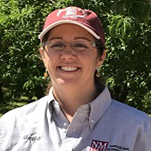
Marisa Thompson
Marisa Thompson, is the Extension Urban Horticulture Specialist for New Mexico State University, and is responsible for active Cooperative Extension and research programs supporting sustainable horticulture. Her research interests include abiotic plant stressors like wind, cold, heat, drought, and soil compaction. Thompson conducts funded horticultural research and publishes in academic journals regularly, as well as maintaining a weekly gardening column, Southwest Yard & Garden, published in newspapers and magazines across the state, and on her blog Desert Blooms, and @NMdesertblooms. Marissa holds a Ph.D. in Plant & Environmental Sciences. New Mexico State University, 2017.
-
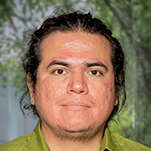
Carlos Rodríguez López
Carlos Rodríguez López is a plant biotechnologist studying the evolution of chemical diversity in the land plants, with a focus on semidesert forage foods and orphan crops. He joined the faculty of the Tecnológico de Monterrey as a lecturer (Profesor Docente) in spring of 2022, and was appointed Researcher/Lecturer (Profesor Investigador) in the summer of 2022. Carlos obtained his PhD at the Tecnológico de Monterrey, where he studied avocado lipid metabolism via MS-based metabolomics and worked at the John Innes Centre (UK) as a postdoctoral scientist in 2017 where he studied the evolution of iridoid diversity in the mint family and biosynthesis of flavor-related compounds in olive, discovering several novel cytochrome P450 enzymes. In 2019 he moved to the Max Planck Institute for Chemical Ecology (Germany), at the Department of Natural Product Biosynthesis.
-
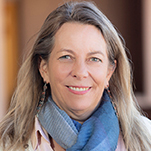
Marie Wilkinson
Marie Wilkinson is a filmmaker, documentary photographer and architect living in Santa Fe, NM.
Working in partnership with Cyril Christo, Wilkinson has been working to document relationships between indigenous people and natural world. Their primary focus has been on Africa. Their interest and concerns for the elephant have evolved over the subsequent years as the poaching situation has escalated. This long-term relationship to Africa magnifies the urgency of the struggle and presents a singular lens throughout their journey. Their photography books include In Predatory Light: In Search of Lions, Tigers and Polar Bears (Merrell, London 2013) a dedication to three endangered bioregions, and Walking Thunder: In the Footsteps of the African Elephant, prologue by Dame Daphne Sheldrick (Merrell, London 2009), a testament to the African elephant. Marie Wilkerson serves as Board Chair at the Santa Fe Art Institute. -
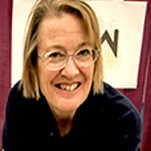
Amy Pilling
Amy Pilling is an artist working with life and life sciences as inspiration, and a museum educator at New Mexico Museum of Natural History and Science in Albuquerque, New Mexico. She also teaches the lab section of a BioArt and Design class at the University of New Mexico, and develops STEAM education programs for regional organizations. She has worked as an educator and curriculum or program developer with University of New Mexico, SciArt Santa Fe, AmeriCorps VISTA, Santa Fe Community College, EcoVersity, New Mexico Bioneers, and Permaculture Drylands Institute over the years.
-
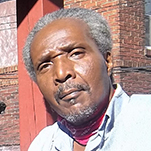
Walter Nelson Jones
Walter Jones is an educator working with the Gary Community School Corporation since 2000. He is a founding member, and Chairman of the Board of the Gary International Black Film Festival a nonprofit organization which annually, in partnership with Indiana University Northwest (for the 6th year), hosts a weekend of independent films. Walter works with ARTetal to found the Fruit Futures Gary Community Orchard Collaborative, and as an avid gardener he has assisted and advised in the development of two community gardens in Gary, IN, along with producing fruit, flowers, herbs, and vegetables in his garden. His long theater performance experience with Morning Bishop Playhouse Community Theater, Gary, IN. refined Walter’s interests in both storytelling and poetry which are the wings of his current artistic endeavors along with photography and cooking.
-
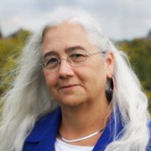
Debera Backhus
Deb Backhus is an environmental engineer, sustainability consultant and integrative change agent. Working across disciplines to link environmental best practices with citizen and cultural engagement, Deb works on a wide range of projects in the Northwest Indiana area including green infrastructure, community planning and the role of culture in economic development. Deb is a key member of the emerging Fruit Futures Gary Community Orchard Collaborative, bringing her expertise in soil testing together with her commitment to social and environmental justice to the formation of the land trust and organizational structures needed for the orchard sites. Deb holds a Ph.D. in Civil and Environmental Engineering from MIT and a Certificate in Sustainability Management from University of Chicago.
-
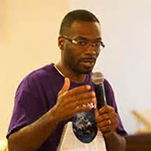
Curtis Whittaker
The Rev. Curtis Whittaker is senior pastor of Progressive Community Church, in the Emerson neighborhood of Gary, Indiana. Whittaker and his team is a Legacy Foundation Neighborhood Spotlight Grant winner, and community collective impact organizer. Under Whittaker’s leadership, Progressive Church has begun a community vegetable garden in Emerson and led the congregation to install solar PV panels on the Church, as a futures-oriented energy pilot for sustainable Emerson. Whittaker is a CPA, founding Whittaker and Company, PLLC in 2001, where he was awarded the 2008 Indiana Super CPA award by Indiana Business Magazine and the 2009 Indiana Black Expo Governor's Award. Whittaker collaborates with ARTetal Studio on the Fruit Futures Initiative Gary and other city-wide sustainability focused projects in the Gary area.
-
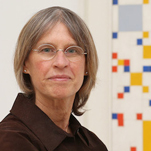
Janeil Engelstad
Janeil Engelstad produces multiform projects that address social and environmental concerns throughout the world. Her process includes extensive research, deep listening and dialogue and building generative, interdisciplinary partnerships that continue after a project has been completed. Her projects often create space for individuals and groups who do not have a public voice or platform to express their identity, experiences and points of view. Engelstad is the founder of Make Art with Purpose (MAP )an organization that produces collaborative arts and design projects that address concerns that impact and shape the world. A Fulbright Scholar, Engelstad has taught at universities throughout North America and Europe and she is currently an affiliate artist at the Social Practice Art Research Center at University California, Santa Cruz.
-
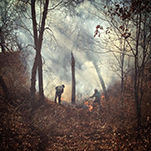
Samuel A. Love
Samuel A. Love is founder and lead organizer for G-NAP, The Gary Natural Area Project, which supports ecological education, appreciation, and stewardship in Gary, Indiana. It works with interested individuals and families, community organizations, public and private partners to organize opportunities for engagement in the natural world and in the city. This work seeks to grow and popularize a sustainable environmental ethic through participation in local conservation, restoration, and land management practices. Recent G-NAP projects include the identification and documentation of high quality natural areas within the Gary Parks Department for the 2016 parks master plan, and helping inaugurate the After School Arts and Sciences STEAM club at the Douglas Center at the Indiana Dunes National Lakeshore. Samuel has also contributed to Notes for a People's Atlas of Gary, and reflects on Great Lakes Bioregionalism.
-
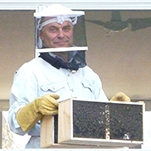
Jim Elniski
Jim Elniski is an artist and clinical social worker who works as creator and catalyst. His community-based art projects, in conjunction with various human-service organizations, educational sites, and neighborhood associations, explore the dynamic interplay of the aesthetic experience, human behavior, and the social and natural environment. Employing a trans-disciplinary approach, linking individual and collective expressions of the human ecology, his special interest is how we contact, shape, and are shaped by the world around us. Sustainability is revealed as a generative ongoing process of give and take. Elniski recently relocated to Santa Fe, New Mexico after many years in the Chicago/Gary area. He is an Professor Emeritus at the School of the Art Institute of Chicago and a psychotherapist in private practice. He holds an MFA rom the University of Iowa and an MSW from the University of Illinois, Chicago.
-
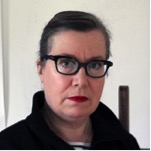
Deirdre O'Mahony
Deirdre O’Mahony is an artist, writer and lecturer at the Centre for Creative Arts and Media, GMIT, Galway. She completed a PhD through practice-based research at the University of Brighton in 2012. Her research is focused on the relationship between politics, ecology and activism within the rural public sphere. Public art projects include X-PO, a former post office re-purposed as a social and cultural interstitial space which has become a locus for a collective re-examination and re-articulation of place in the Burren in the West of Ireland and is included in Tania Bruguera’s Arte Útil Archive. She has had numerous national and international gallery and museum exhibitions. And received fellowships and awards including a Pollock-Krasner Foundation and major awards from the Arts Council of Ireland.
-
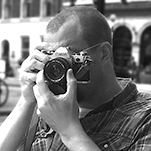
Steve Juras
Steve Juras is a multi-disciplinary artist, curator,videographer, and educator. Steve helped shape the initial profile of ARTetal Studio and regularly contributes concept development, creative direction and video content to ARTetal projects. His current projects include a short film collaboration with art collective Our Literal Speed, which screened at Performa 2015, and “Haywire,” a multi-media performance based on medical ethics, body politics and 18th century folklore. Recent curatorial projects include Mind the Gap, Hyde Park Art Center, 2014; Veteran, Fulton Street Collective, 2014; and Market Value: Examining Wealth and Worth, Averill and Bernard Leviton Gallery, 2013. Juras received a BA in Philosophy and Literature from the University of Notre Dame and an MFA from the School of the Art Institute of Chicago.
-
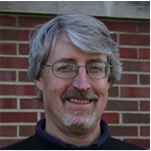
A. Paul Schwab
A. Paul Schwab is Professor Emeritus, Soil Environmental Chemistry, Texas A+M University, College Station, Texas. Dr. Schwab has been involved the remediation/reclamation of drastically disturbed lands for his entire career. He published the results of his first phytoremediation experiment in 1996. Since that time, he has been involved in phytoremediation of soils contaminated with petroleum, polyaromatic hydrocarbons, polychlorinated biphenyls, chromium (VI), lead, and arsenic. He has been working with highly alkaline blast furnace slag for the past five years and had previous experiences with coal ash with properties similar to that of slag. Dr. Schwab's current research program investigates the contaminants in soil and water, including: pesticides, plant nutrients, polychlorinated biphenyls (PCBs), polyaromatic hydrocarbons (PAHs), and heavy metals.
-
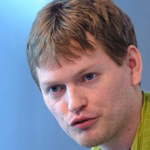
Sacha Kagan
Sacha Kagan (PhD) is a transdisciplinary researcher of 'cultures of sustainability', and art sociologist, based at Leuphana University (Lüneburg, Germany), founding coordinator at Cultura21 (an international network for cultures of sustainability), and active member of several other networks in scientific and artistic fields. He is the author of the internationally received book Art and Sustainability (transcript Verlag, 2011). In his search for cultures of sustainability, Sacha came to the understanding that aesthetics of complexity provides a rich cultural-creative key to the search process of sustainability-transformation. His current research interests include the roles of artists in urban “anthropo-scenes” as spaces of possibilities, and the contributions of queer- and BDSM-oriented practice and theory to aesthetics of complexity.